Earth’s average annual temperature fluctuated by as much as 35°C (at high latitudes) from one millennial-scale period to the next during the last glacial period.
A recently-published 2-part study (Smul′skii, 2022a and 2022b) utilizes established orbital and insolation data to calculate Earth’s average temperature today (0 k years ago), 14.4°C, and at 25°N, 45°N, 65°N, 80°N, 0°, -25°S, -45°S, -65°S, and -80°S during 3 paleo epochs: 15.9 k years ago, 31.3 k years ago, and 46.4 k years ago.
Global annual temperature of Earth: 14.4°C – the same as a century ago
Consistent with dozens of other calculations, Smul′skii (2022a) determined the mean annual temperature of the modern period, which includes 1991-2018, ranges between 14.07 and 14.41°C.
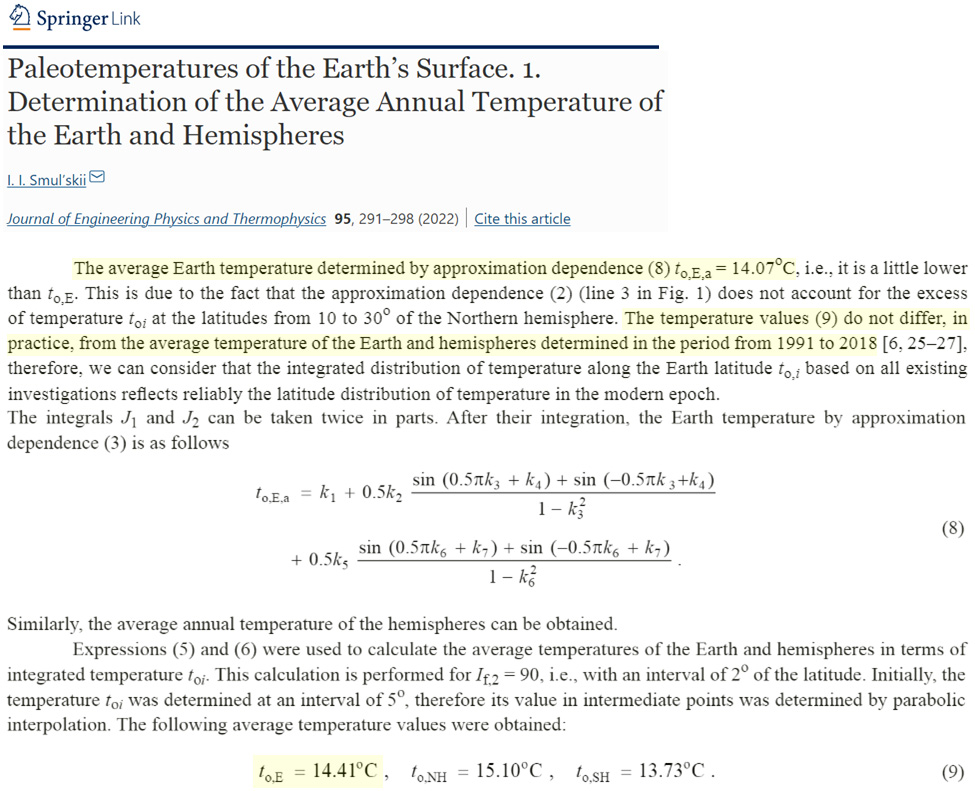
This calculation is similar to what Jones et al. determined as Earth’s temperature in a 1999 study: 14.0°C.
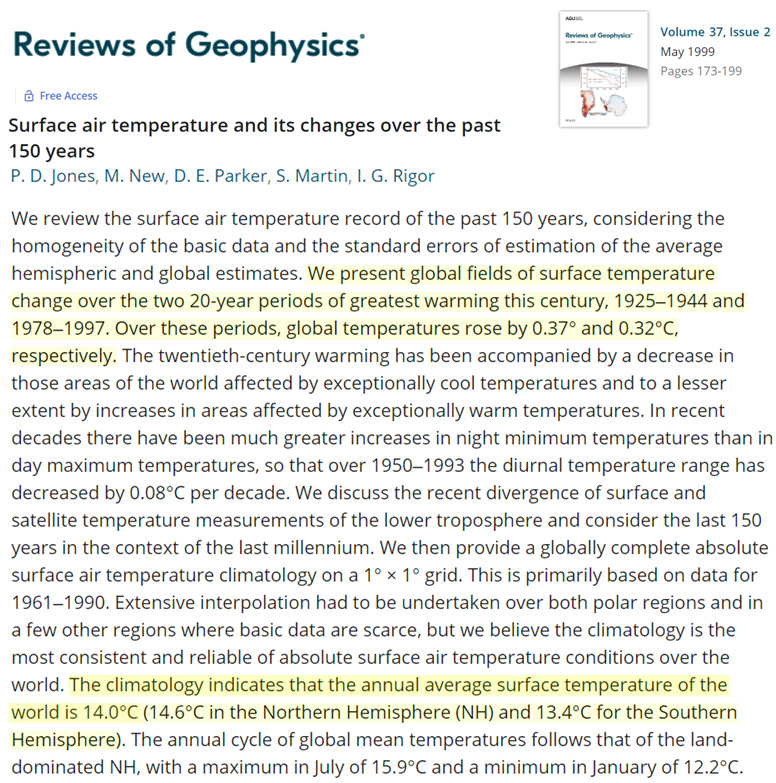
Image Source: Jones et al., 1999
Kramm et al., (2020) reported the generally agreed-upon global temperature from 1877 to 1913 from dozens of calculated results was also about 14.4°C.
HadCRUT, Berkley, and NASA GISS indicate the 1991-2018 period’s global annual surface temperature has also been 14.5°C. Thus, as these geoscientists conclude, there has been “no change in the globally averaged near-surface temperature over the past 100 years”.
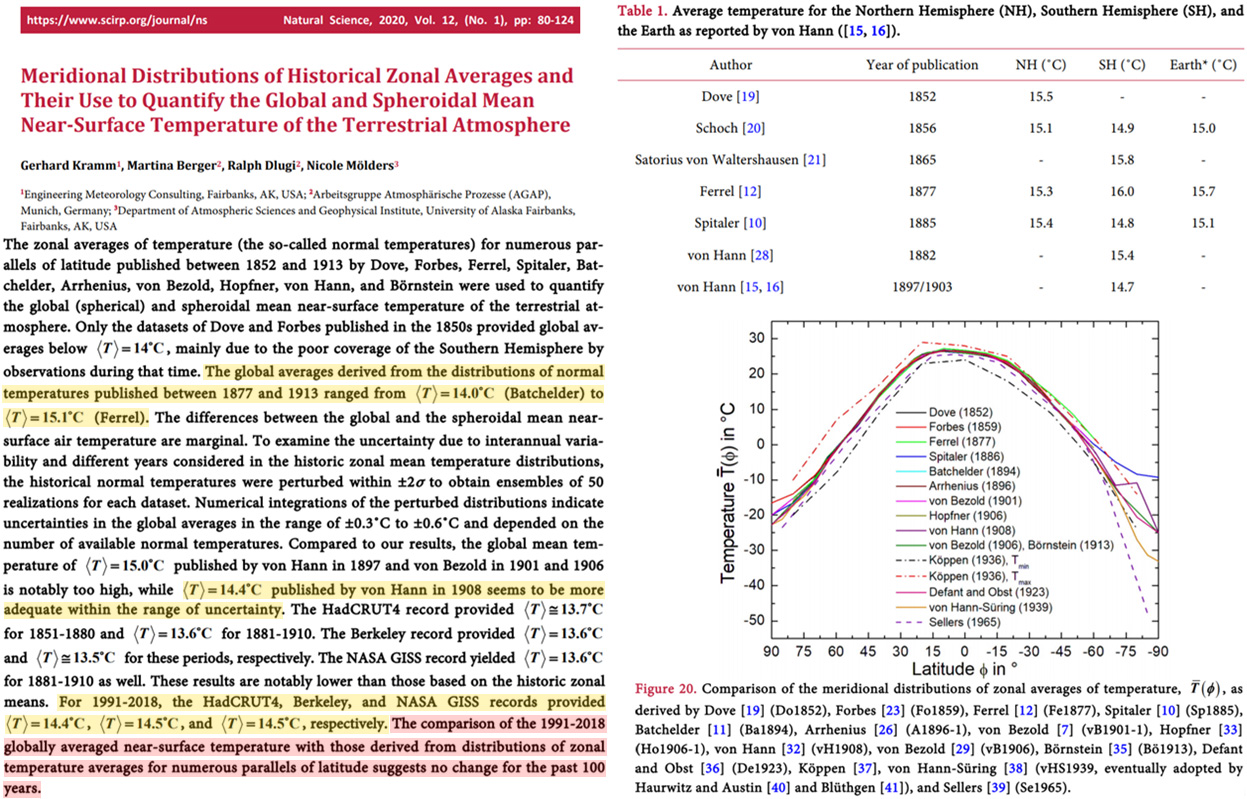
Image Source: Kramm et al., 2020
The global annual temperature was warmer than today during the last glacial period
Even though atmospheric CO2 concentrations were said to be about 200 ppm 31.3 k years ago, or during the last glacial, Earth was significantly warmer than it is today – especially at the higher latitudes.
At 65°N, for example, the mean annual temperatures were 0.66°C 31.3 k years ago, but -5.6°C today. In other words, it was 6.3°C warmer during the last glacial at this latitude.
At 90°N, mean annual temperatures were -2.65°C 31.3 k years ago, but -25.3°C today. The modern North Pole is thus ~22°C colder than it was during the “Karginsky Interglacial” (31.3 k years ago). At 90°S, mean annual temperatures were ~27°C warmer than today (-31.1°C vs. -4.1°C) 31.3 k years ago.
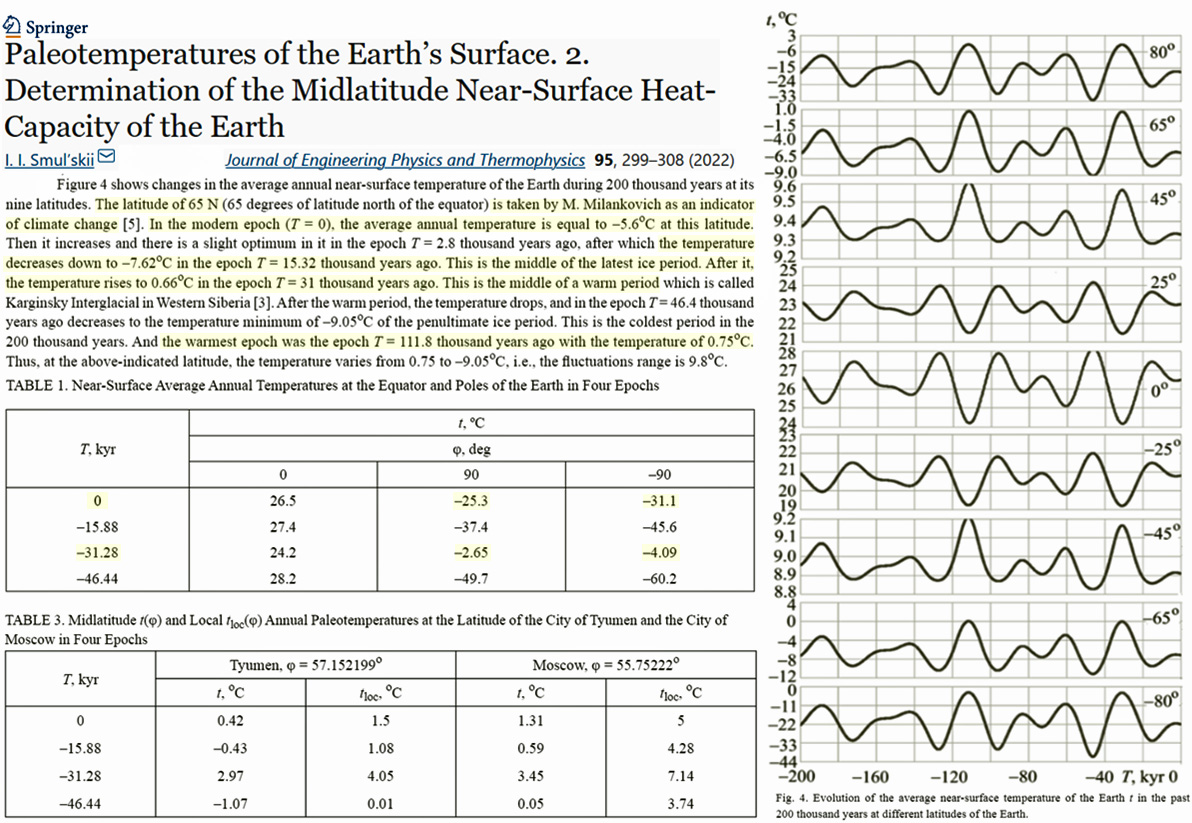
Image Source: Smul’skii, 2022b
Averaged over the entire Earth, the mean annual temperature was 0.4°C warmer than modern (14.8°C) 31.3 k years ago, and -0.4°C colder than modern (14.0°C) 46.4 k years ago, or during the coldest period in the last 200,000 years.
Mean annual temperature swings ranging from -3.4°C at 80°N 111.8 k years ago to -40.9°C at 80°N 46.4 k years ago suggest millennial-scale climate variations as high as 35°C occur naturally in the Earth’s climate system.
Other paleoclimate studies also document a warm period 31.3 k years ago
These global to regional temperature variations are consistent with independent paleoclimate research. For example, about 31.3 k years ago (“31,436 – 31,178 cal BP”) temperatures in the Russian Altai mountains (49°N) were thought to be 5.9°C warmer than today (Ganyushkin et al., 2018) given the presence of tree remains at much higher altitudes (500 m) than the modern tree line dating to that period.
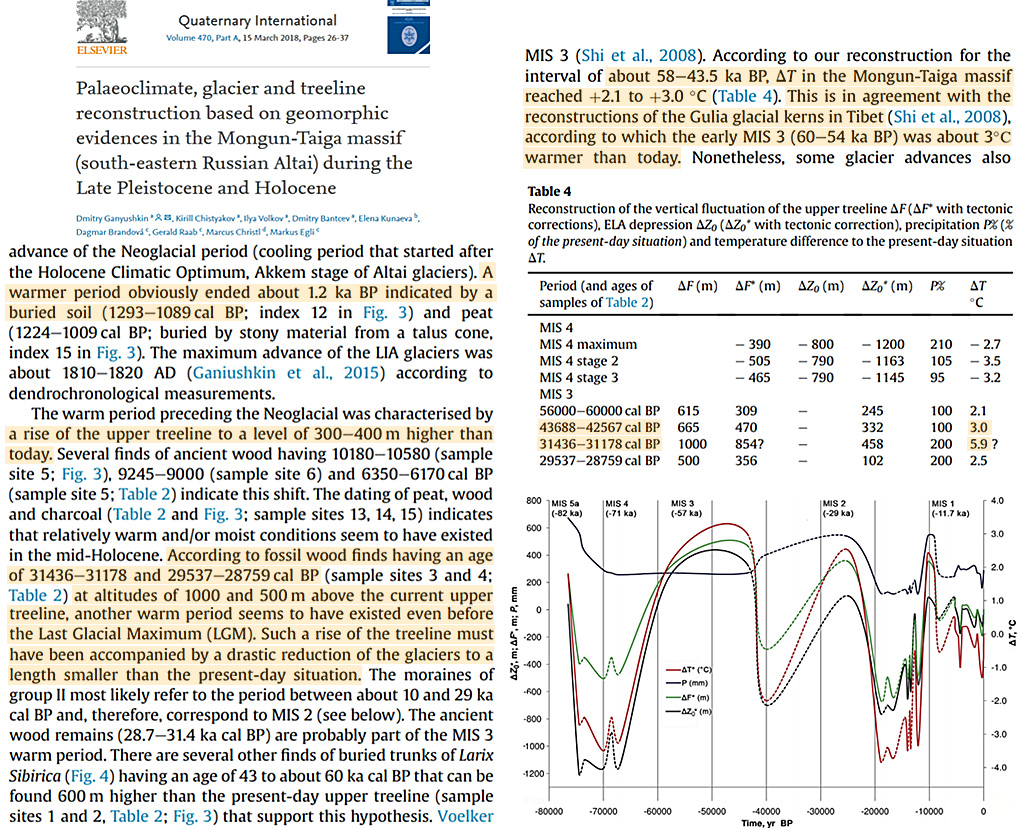
Image Source: Ganyushkin et al., 2018
Scientists document a Siberian Arctic with “warmer-than-today temperatures (by up to 4 – 4.5°C)…between about 39 and 31 cal kyr BP” (Wetterich et al., 2021).
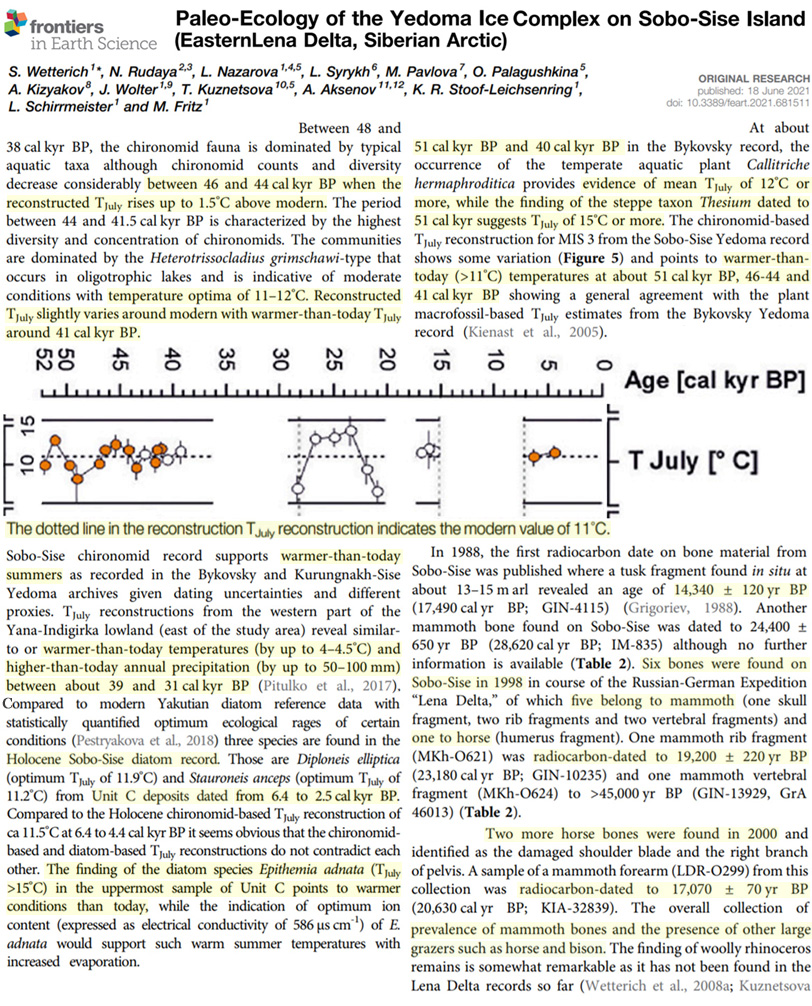
Image Source: Wetterich et al., 2021
There were ~5°C warmer glacial climates (July) than today throughout Northern Asia during the millennia between 50 k and 20 k years ago (Tarasov et al., 2021).
“…reconstructed mean July temperatures above 12°C for most of the last cold stage [glacial] in the study area [throughout Northern Asia], where modern mean July temperatures are about 7°C”.
The widespread presence of grazing mammoths, horses, bison, deer, antelope, gazelle…in Siberia and Alaska and well north of the Arctic circle imply “year-round grazing grounds.” This requires warmer temperatures and more pervasive ice-free grass-grazing ranges than exist today.
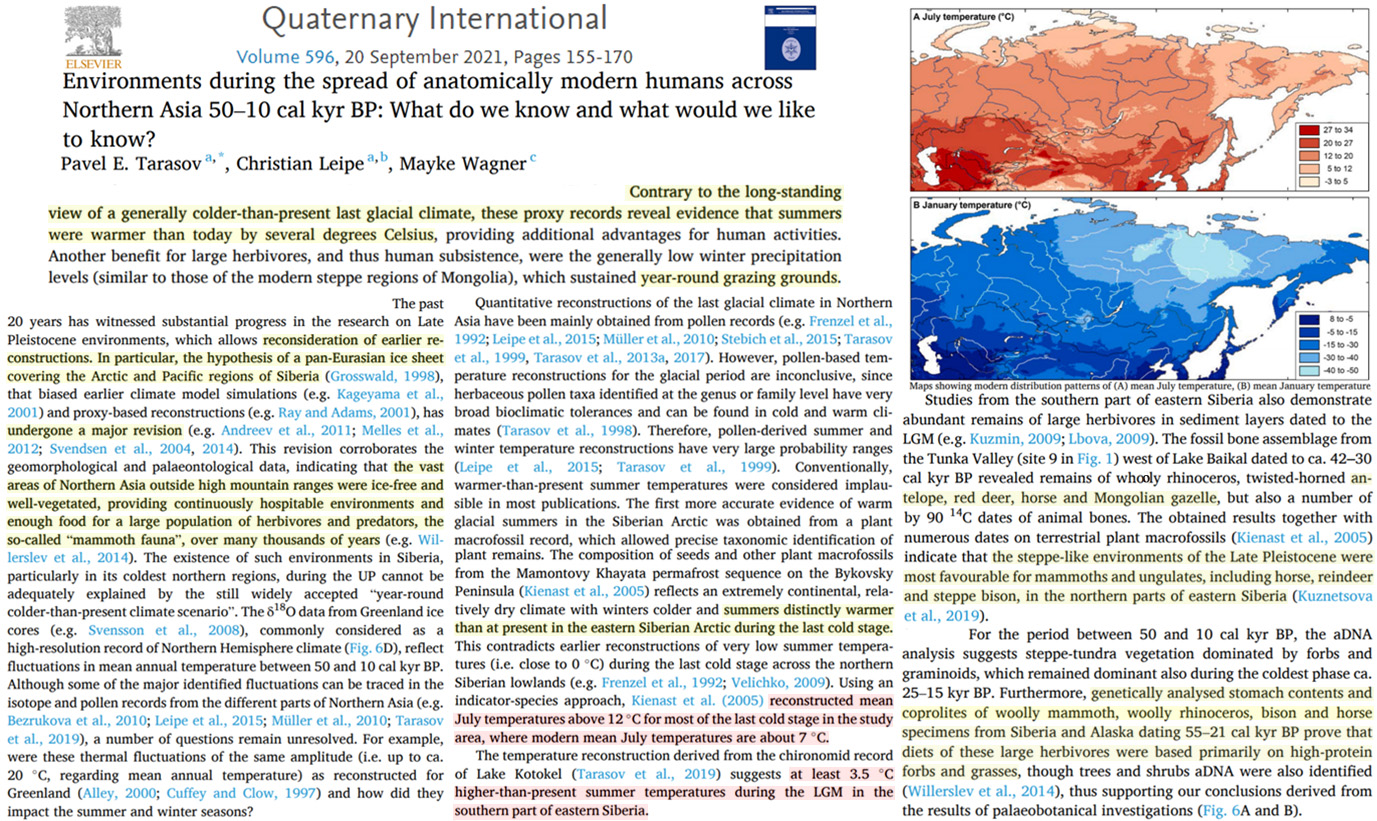
Image Source: Tarasov et al., 2021
In the North Pacific ~35 k to 18 k years ago temperatures ranged between 10 and 16°C versus 9.1°C today (Max et al., 2020).
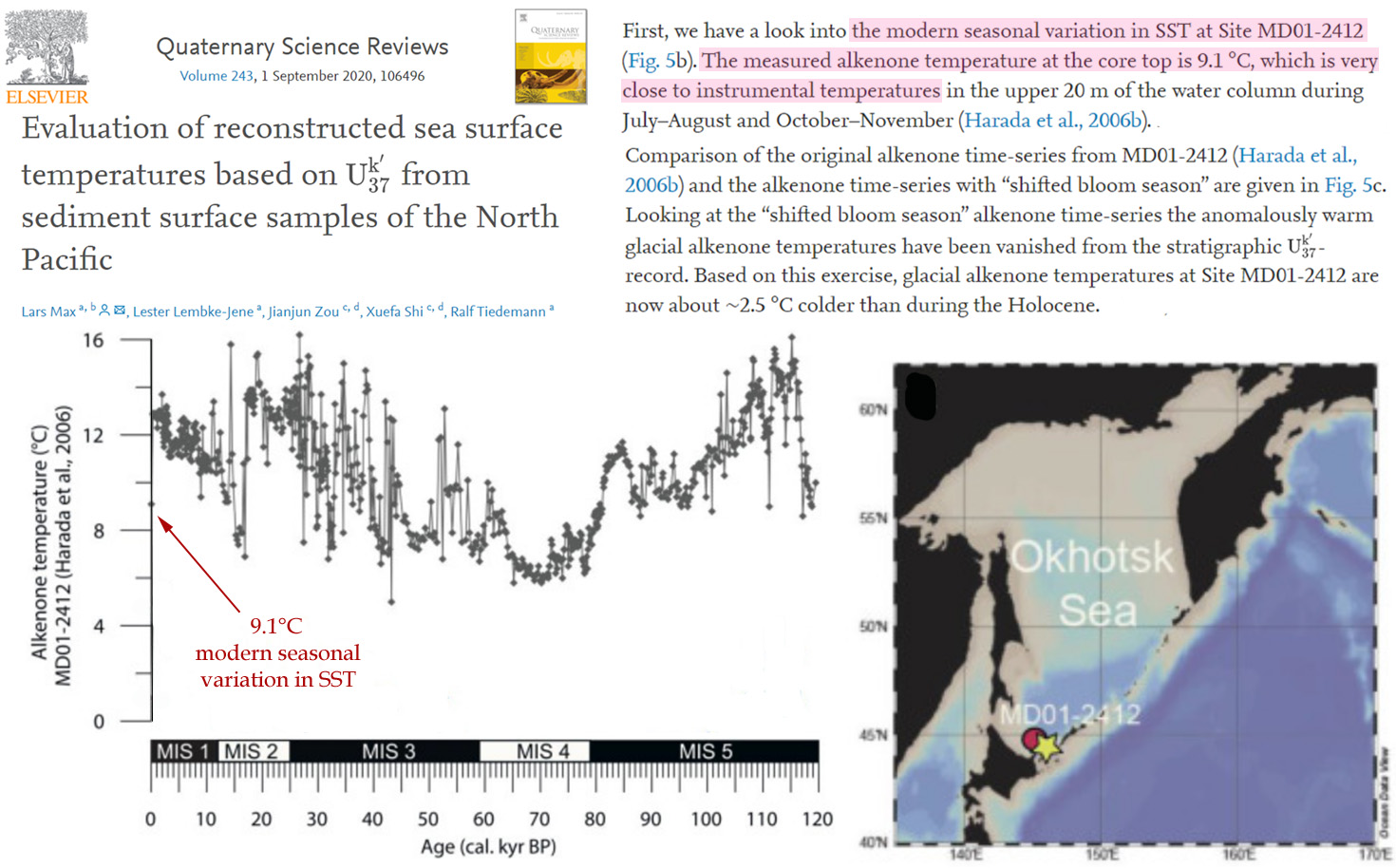
Image Source: Max et al., 2020
In southern California temperatures reached 22-23°C 31 k to 24 k years ago, whereas they are only 18°C today (Feakins et al., 2019).
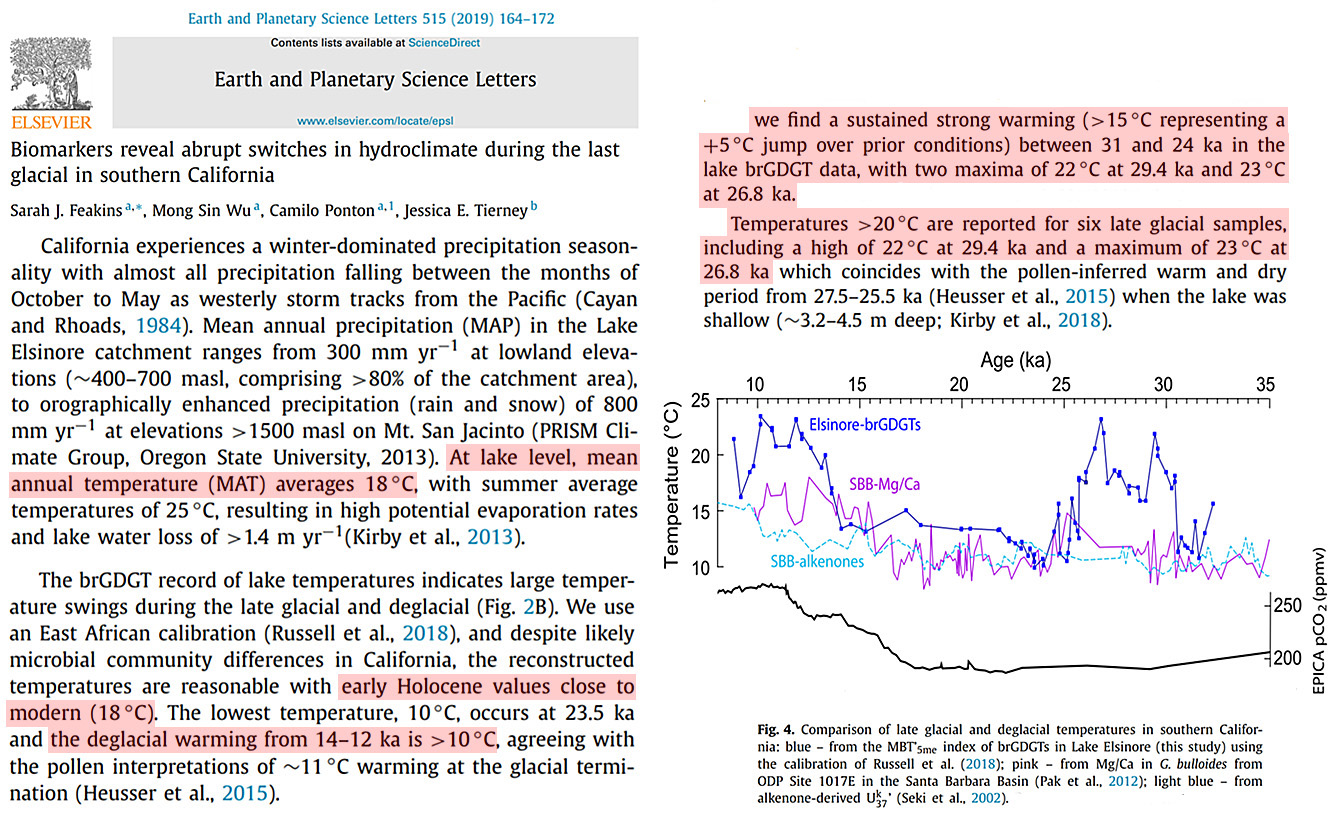
Image Source: Feakins et al., 2019
In the Southern Hemisphere, the Southern Ocean’s surface temperatures peaked at 13.6°C about 22 k years ago. From 35 to 30 k years ago temperatures ranged from 12-13°C versus 8.5°C today (3.5 to 4.5°C warmer). There were “higher SST during the 40-24 kyrs period than during the Holocene” (Civel-Mazens et al., 2021).
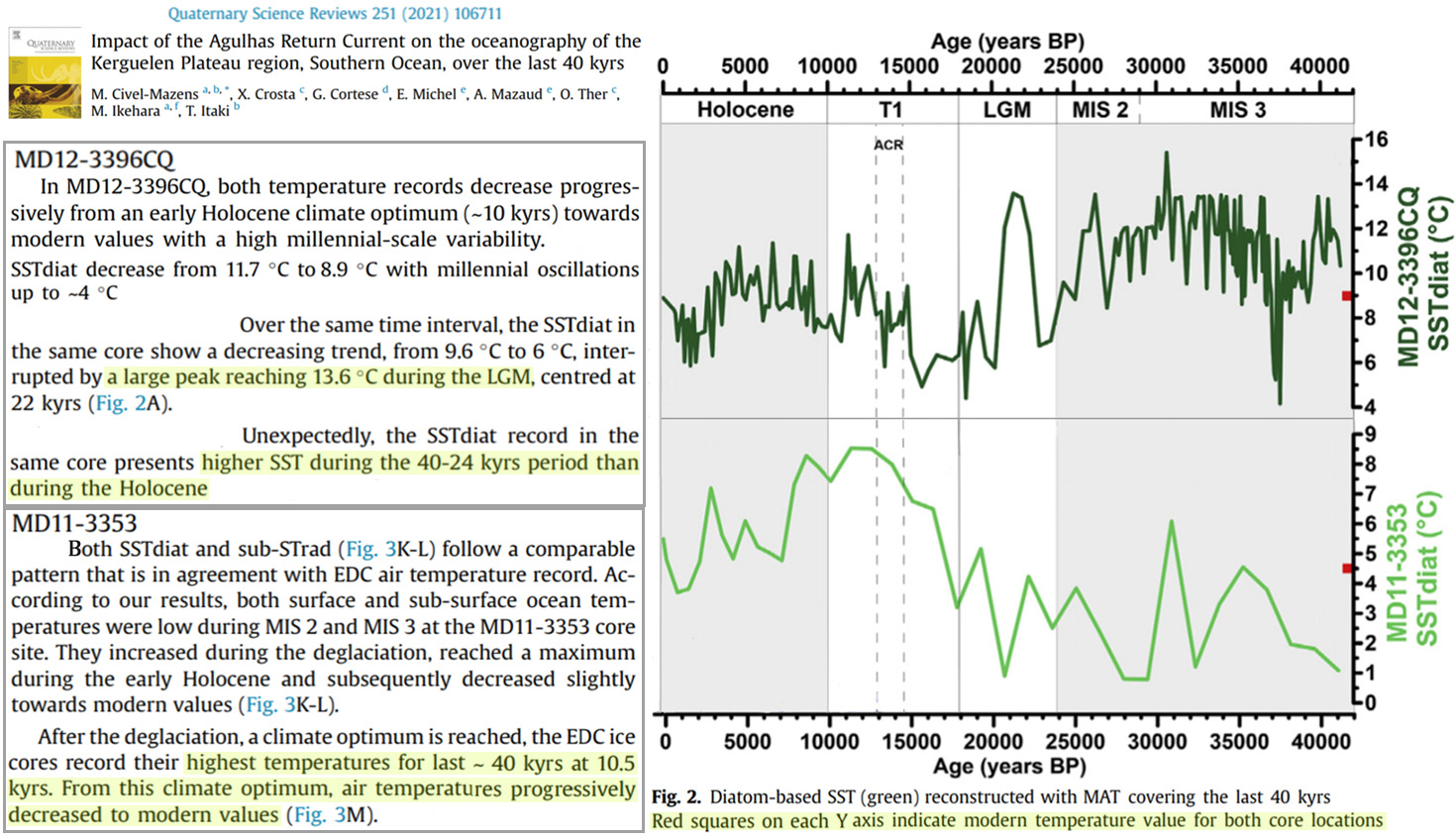
Image Source: Civel-Mazens et al., 2021
It was 2-5°C warmer than today in the South Atlantic from about 65 k to 30 k years ago, “prompting us to exclude atmospheric pCO2 as a direct driver of SST variations in the southern WTA [Western Tropical Atlantic]” (Hou et al., 2020).
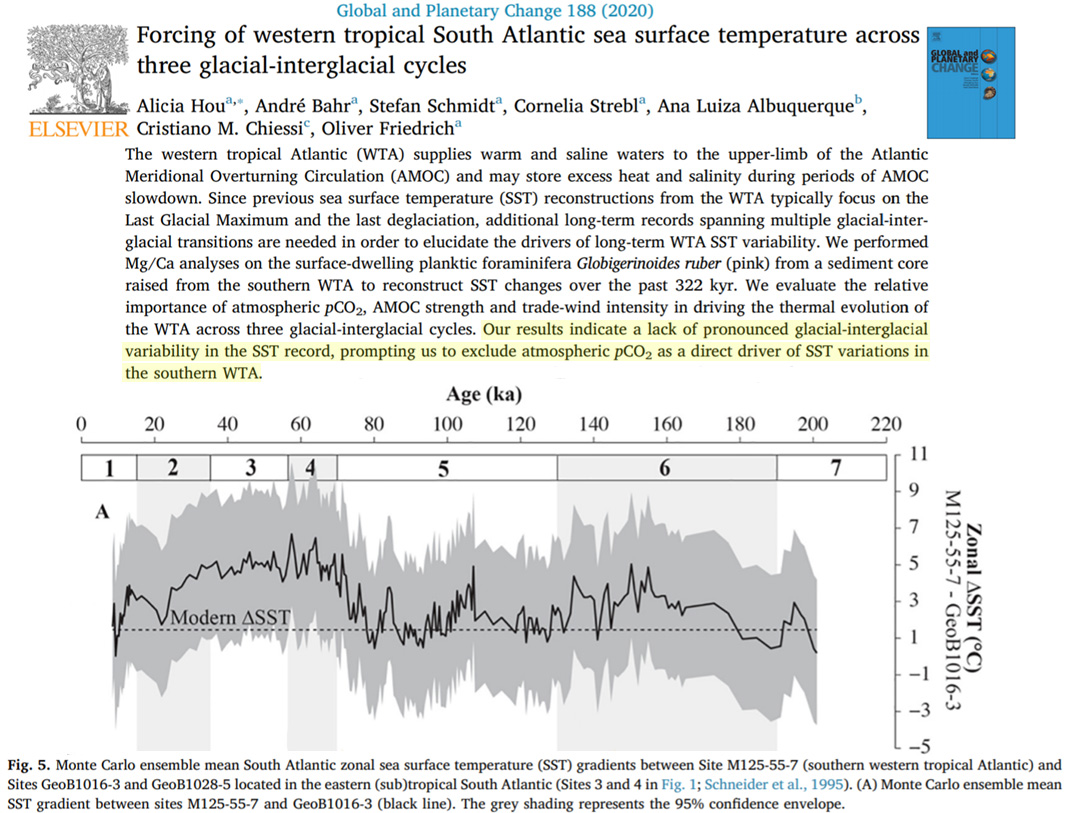
Image Source: Hou et al., 2020
In sum, none of these studies support the conclusion that CO2 concentrations are a driver of surface temperatures. Earth’s mean annual temperatures have been much warmer (or colder) than today, regardless of the CO2 concentration.





We are still living in an ice age by the definition of two frozen icecaps which refuse so far to go away. We live in an interglacial which indicates the arrival of colder times; not too soon I hope.
[…] Related: Earth’s Mean Annual Temperature Was Warmer 31,000 Years Ago…The North Pole 22°C Warmer […]
[…] Read the full post at No Tricks Zone […]
[…] Learn the complete put up at No Tricks Zone […]
[…] Read the full post at No Tricks Zone […]